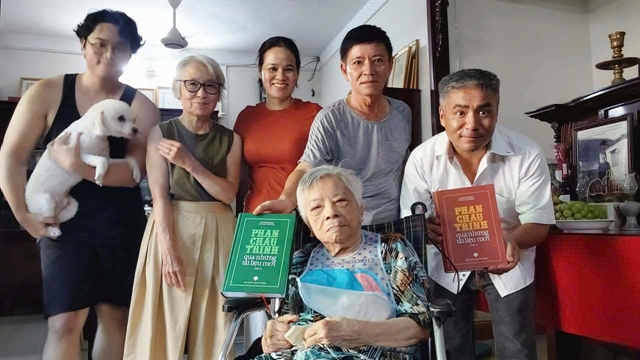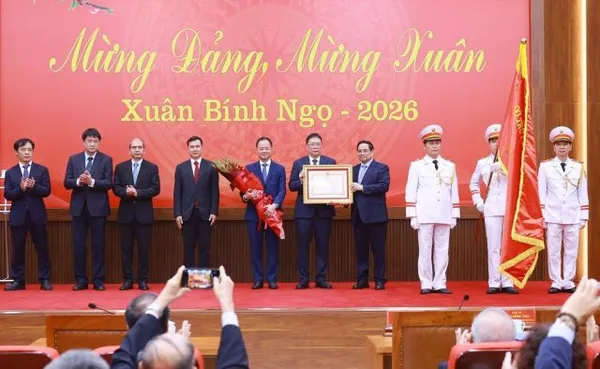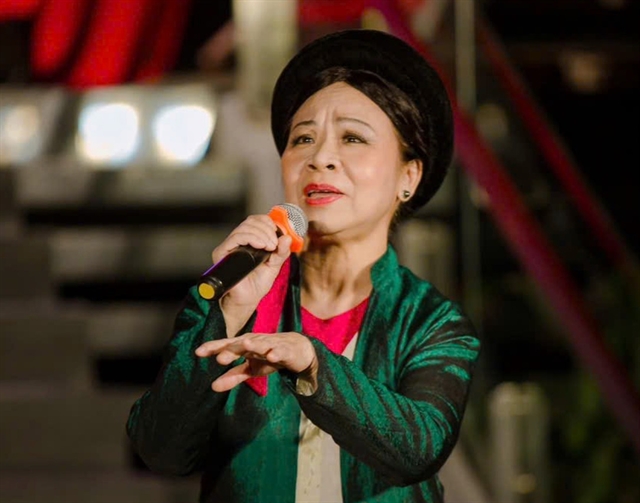 Inner Sanctum
Inner Sanctum
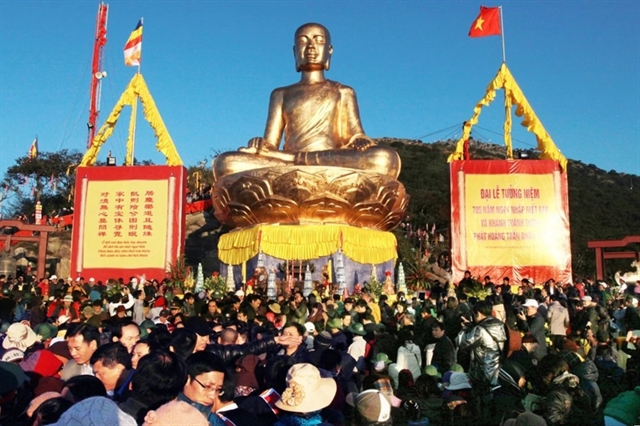
Pianist Nguyễn Bích Trà, who has been described as “sophisticated and unique” and having “passion and an amazing talent for the piano” by foreign media, spoke with Cát Khuê about her deep love of music.
Having performed in countries such as Russia, Poland, Germany, Norway, Italy, the UK and the US, critically-acclaimed pianist Nguyễn Bích Trà has been described as “sophisticated and unique” (Rheinpfalz Zeitung) and having “passion and an amazing talent for the piano” (American Record Guide). She spoke with Cát Khuê about her deep love of music.

|
| Pianist Nguyễn Bích Trà. Photo hoinhacsi.vn |
London-based Vietnamese pianist Nguyễn Bích Trà (Tra Nguyen) is the daughter of movie star Trà Giang and Professor Bích Ngọc. She gave her first concert when she was ten, performing Mozart’s Piano Concerto, K488 with the Hà Nội Conservatory Orchestra. She graduated from the Tchaikovsky Moscow Conservatory in 1997. Two years later, she completed an advanced performance course at the London-based Royal Academy of Music and continued her master’s degree at the College of Music and Media there. In 2000, she won first prize at an international piano contest - Brant in UK.
She has performed at prestigious concert halls such as the Queen Elizabeth Hall and Wigmore Hall in the UK, the John F Kennedy Center for Performing Arts in Washington, DC, and the Tokyo Opera City Concert Hall. She has also worked with famed production companies, including Toccata Classics, Radio Four Hong Kong, Sterling CDs, and ARS Productions. Her orchestra recording of romantic Swiss-German composer Joachim Raff’s Suite received superlative reviews and was selected as ‘Album of the Week’ by The Independent twice, in March 2010 and April 2012. She released three solo albums in 2011 with Hong Kong-based Naxos Record, one of the largest classical music record labels worldwide. She was awarded ARAM (Associate of the Royal Academy of Music) in 2013 for her significant contribution to the music profession.
Trà often returns to perform in Hà Nội and HCM City and to give master classes to young Vietnamese.
Inner Sanctum: You always find the time to perform and work in Việt Nam, even though you have a very busy schedule in Hong Kong. How is that?
I do it because, simply, Việt Nam is my homeland. No matter how busy my schedule may be, I am most at myself when I perform at home.
I’m always looking for opportunities to perform in Hà Nội and HCM City.
Inner Sanctum: How did you come to play the piano?
I was born into an arts family in Hà Nội. I loved listening to my father, the late professor Bích Ngọc, play the violin. He had seen I had some musical ability and insisted I take up an instrument. But I believed the violin would be too difficult to learn. He then miraculously found a second-hand piano, and I was happy. My father certainly ignited a love of music that has accompanied me ever since.
Inner Sanctum: And you found that love as a little girl?
Time has passed and the more I grow the more I love music. I have studied great works by famed composers, and feel I want to devote my life to it.
When I was 14 our family moved to Russia. There I saw some Russian friends performing, and their talent was clear to see. I started to doubt my own, from technique to approach. After a week of wondering whether to keep going with music, I decided not to give up because there’s nothing that compares to music in my heart. And it’s with me still.
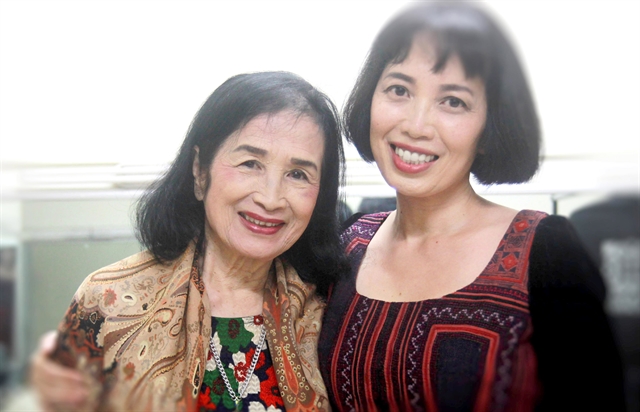
|
| Trà with her beloved mother, Vietnamese movie star Trà Giang. Photo viettimes.vn |
Inner Sanctum: You and your mother are very close. How has it been being separated by some distance this year?
I love my mother so much. She gives me the freedom to stand on my two feet. When work is going well, I return to Việt Nam frequently, every month or so. But now, with the world grappling with COVID-19, I just can’t come back. We talk online twice a day, in the morning and the evening. I’m happy to see her passion for painting.
Inner Sanctum: What are the most important influences on your playing?
Everything is closely interconnected, I think. The human voice plays a substantial role in my understanding of sound -- innate or comparative. Literature helps me understand the psychological architecture and the narrative sense of music composition. Visual arts inspire me to explore different spectrums and shapes of sound, and, most importantly, the relationships with people in my life teach me to understand the emotional meaning of all of this.
Inner Sanctum: What performances are you most proud of?
I don’t have one that I’m totally happy with, but when the music directs me and draws out unexpected things in concerts or in the recording studio, it feels so good.
Inner Sanctum: Do you have a favourite concert venue to perform in?
As long as there is an audience who wants to listen, I’m in.
Inner Sanctum: What are your favourite pieces to play or listen to?
I love to play many things, but performing the Andante from Brahms’ Second Piano Concerto gives me a deep sense of wonder. It feels very special to be a living part of such an ethereal sound world, breathing and creating it on the spot with other musicians.
I listen to music all the time, so on top of a very long list I like Lully and Medtner songs.
Inner Sanctum: What musicians do you love the most?
I admire many musicians, including Edwin Fischer, Clara Haskil, Henrich Neuhaus, Carlos Kleiber, and Kathleen Ferrier. When you listen to these amazing performers, the music is what you hear first, not the “performance” or the “interpretation”. VNS

_med.jpg)
